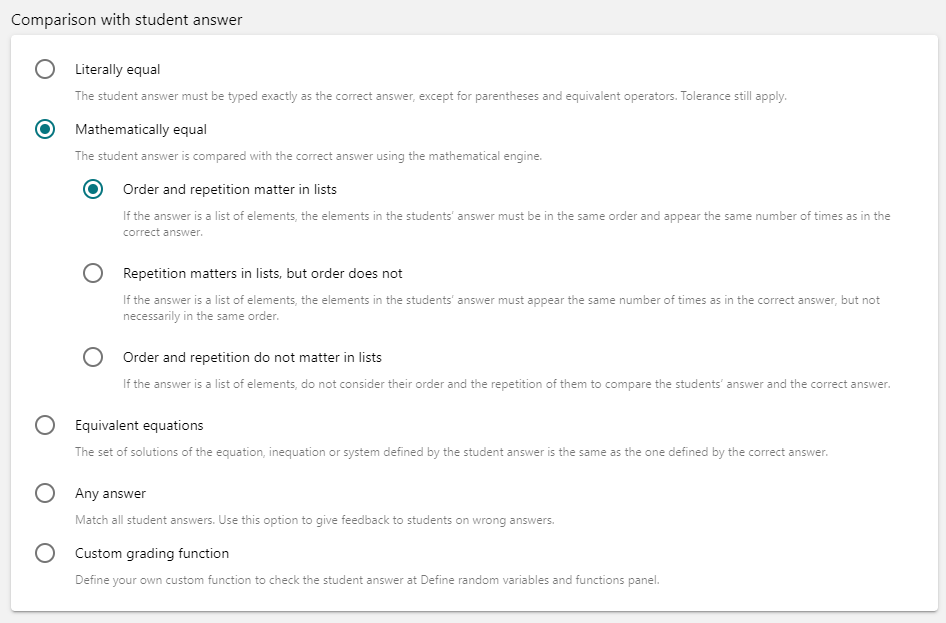Validation Options
When defining a WirisQuizzes question's correct answer, it's essential to decide which validation criteria we want to compare the student's response with. It also involves the precision and tolerance for which numbers are treated throughout the whole question.
Firstly, you need to define how decimal numbers are treated in CalcMe, taking into account the precision with which we display them and the tolerance with which we'll compare them to the correct answer. There are several options to do so, and we can also ask for particular formats or concrete numbers of decimals as assertions. You can see a detailed description of all of them in the Numbers representation, tolerance and precision section.
Then, you have several options for how the student's response should be compared to the correct one.

You can see a detailed description of each option below.
Literally equal: This removes all mathematical interpretations from the comparison. The student's answer is only correct if it matches the correct answer exactly. For example, if the correct answer is 4, but the student writes 4.0, it will not be counted. This criterion is rarely recommended.
Mathematically equal: It will detect if the student's writing is mathematically equal to the correct answer. For example, we don't need to worry if the student writes a + b or b + a. You can find three checkboxes below to choose if order and repetition are ignored or not from lists. More details here.
Equivalent equations: This comparison is very similar to the mathematically equal option. Still, it is for the particular case where the answer is an equation (e.g. the student could write , or , or any equivalent form). More details here.
Any answer: Anything that the student answers will be counted as correct. More details here.
Grading function: Define your own function to decide which answers are accepted and how to grade them. More details here.